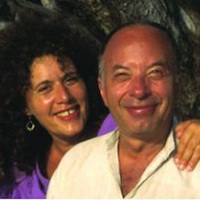The purpose of most spiritual traditions is to reach enlightenment, a state of pure awareness and inner joy.
This may appear totally beyond us when we compare ourselves to the likes of the Buddha, the Dalai Lama, or other wise yogis, but still we diligently meditate and follow well-trodden spiritual paths in the deep desire that we will taste the peace beyond understanding, freedom and unconditional happiness; for within all of us is hidden the potential for such awakening.
Yet, at the same time, we are human beings dealing with human issues. Saints have headaches and the Buddha had stomach upsets.
So the question arises: does enlightenment mean the end of neurosis, or is it possible to be awake and aware while also having some measure of hang-ups? This question was the topic of a conference in England that we attended, and the resounding answer was yes!
Awakening doesn’t mean we become perfectly compassionate, infinitely generous, always understanding, kind, wise and wonderfully peaceful all of the time. Becoming more aware, kind and compassionate arises naturally as we witness the suffering and confusion in others; but also, as we get to see, accept and befriend our own humanness, whether it manifests as anger, grief, insecurity, or doubt—to name but a few.
Ed trained in India with a brilliant yoga master. He immersed himself in the teachings, tasted the sweetness of essence, and experienced vast radiant emptiness. He also saw that his teacher could be as neurotic as anyone else, and that the real difference between an enlightened being and a madman is that the enlightened one knows he’s mad!
Our humanness doesn’t just dissolve the more aware we become. We still feel everything that happens, still get angry, frightened, sad, just as we also feel happiness, joy and laughter, as these are all part of the human condition. But whatever we’re experiencing is just that, a feeling or a thought, and not the whole of us.
One of India’s greatest teachers, Ramana Maharshi, likened our true self to a white cinema screen before a film starts. Then the lights go out, the film goes on and we experience every feeling and emotion played out in front of us. When the film is over the lights go on and the screen is white again.
We view the dramas of life in the same way, often taking them so seriously that we get drawn into every emotion, every scenario being enacted, but who we truly are is pure awareness, awake consciousness that is both behind and beneath the performance. In this way we are both enlightened and neurotic at the same time, just as we are both human and free at the same time.
As awareness develops and awakening occurs, so there’s an inner spaciousness around whatever we are feeling or going through that allows us to embrace the feeling without owning it; we can witness the story without becoming an actor in the drama.
While attending a 10-day meditation retreat at Suan Mokkh, the Garden of Liberation monastery in southern Thailand, the abbot, Ajahn Po, reminded us: “Whatever arises, whether fear, hate, or any other feeling, you can see this as just that. No need to identify it as ‘my fear’ or ‘my anger.’ Then it can come and go without disturbing your mind.”
Like elephant spirituality on Facebook.
Ed: Sara Crolick










Read 4 comments and reply